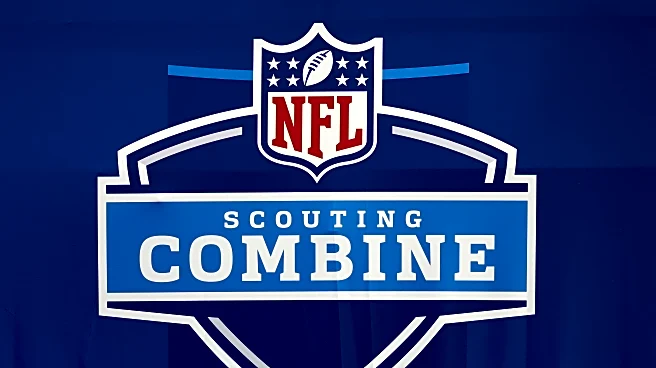What's Happening?
Consumer Reports has provided recommendations and advice for individuals considering purchasing used cars, as the cost of new vehicles remains high. With new car prices averaging nearly $50,000, many buyers are turning to the used car market to avoid large loans. However, the used car market is currently tighter than usual, with approximately two million fewer new cars sold in 2021 compared to 2019, leading to increased demand and higher prices. To navigate this market, Consumer Reports suggests checking the vehicle's history, reliability ratings, and having an independent mechanic inspect the car. They also recommend taking the car for a thorough test drive to avoid future issues. Popular models recommended include the 2019 Toyota Corolla, 2018 Mazda CX-5, and 2019 Toyota Camry Hybrid.
Why It's Important?
The shift towards used cars is significant as it reflects broader economic trends and consumer behavior in response to high new car prices. This trend impacts the automotive industry, influencing production and sales strategies. Consumers face challenges in finding affordable and reliable vehicles, which can affect personal finances and mobility. The advice from Consumer Reports is crucial for buyers to make informed decisions, potentially saving money and avoiding costly mistakes. The emphasis on checking interest rates and loan terms highlights the financial implications of car purchases, which can have long-term effects on consumer debt and spending.
What's Next?
As the used car market remains competitive, buyers are expected to continue seeking strategic ways to secure good deals. This may involve increased reliance on consumer advice and resources like Consumer Reports. Dealerships might respond by offering more competitive financing options or expanding their inventory of certified pre-owned vehicles. Additionally, the automotive industry may adjust production strategies to address the demand for affordable new cars, potentially impacting future market dynamics.
Beyond the Headlines
The current situation underscores the importance of financial literacy and consumer education in major purchases. It also highlights the potential for increased scrutiny on lending practices and interest rates in the automotive sector. As consumers become more informed, there may be a push for greater transparency in dealership practices and financing terms, which could lead to regulatory changes or industry reforms.










